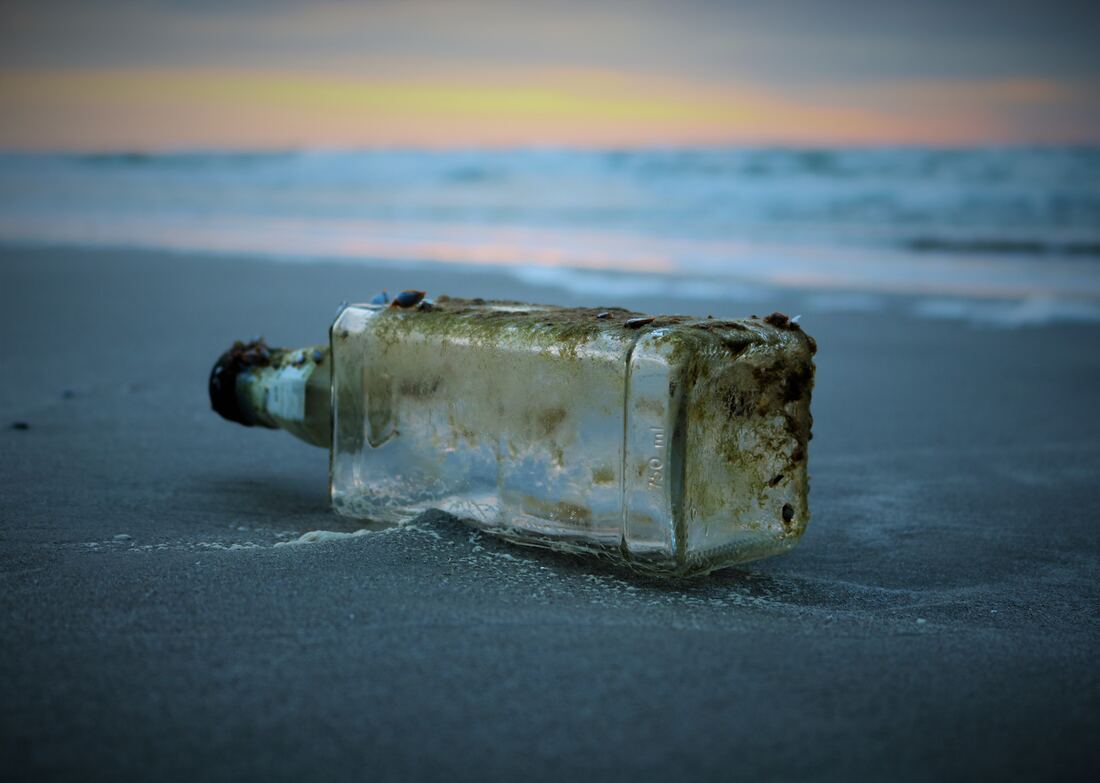|
Let guidance, not guilt, determine when you reach out or respond Let’s clear up the heaviness, distress, guilt, obligation, anxiety, energy leaks, bad feelings & bad vibes, self-loathing—whatever way you feel rotten about texts, WhatsApp messages, Instagram (or any social-media) messages, emails, cards & letters, little notes left, messages in bottles, WHATEVER WHATEVER WHATEVER. We have so many ingenious ways to be in touch, create connection, and send love. You can use these to make you feel GOOD or you can use these to make you feel all manner of BAD. Please use communication tools consciously. Use them ONLY to support you to feel how you want to feel. (Use NOTHING in your life to foster feeling how you don’t want to feel!) (Use NOTHING in your life to foster feeling how you don’t want to feel!) (Use NOTHING in your life to foster feeling how you don’t want to feel!) You do not owe anybody messages. Unless you’ve made some clear, contractual agreement with someone, YOU DO NOT OWE THEM
(Hey, integrity side note: it really helps NOT to tell people you’ll get back to them at any certain time because then you’ve said that so, sure, you’ll feel guilty & bad if you don’t do what you said you’d do. Just DO get back to them when it’s right, and leave out the promises. Or keep track of and follow through with what you say you’ll do.) You are not a bad person if you have unanswered messages from others sitting anywhere in your world. These others wrote you because they wanted to, when they wanted to. They were following their timing, not yours. You do not owe them lining up with that. They wrote you when they felt like it for their reasons and with their thoughts & feelings going. Some of those thoughts & feelings are ego-based—that is, related to their personality structure and what they have & haven’t worked out yet, and what they want from you, and what their beliefs are about what’s what and what they owe others and what others owe them. Please know (um, KNOW that you know) that all of the above varies tremendously from one person to the next. There’s no standard, no one-size-fits-all. It is not your job to track all of those things for others. It is not your job to work yourself around other people’s stuff. In fact, if you make it your job, you will fail. You will also feel all manner of BAD: obligation & guilt & sadness for disappointing them [and whatever else or other you go to]. And if you don’t get right back to them, you will feel things like this:
(I recently wrote about how resentment can be a very useful messenger. Check that out if and only if you feel drawn to do so. You also don’t owe anyone clicking on the links they send you.) You might consider disconnecting any false equal sign you’ve got going between someone messaging you and you owing them anything. They messaged me = I owe them a certain response in a certain timing Set yourself free. Then you can just give everyone on the planet permission to reach out to you when it’s right for them, for their reasons, and you can give yourself permission to reach out to them when it’s right for you, for your reasons. Let’s talk about leading with apologies when you get around to reaching out to someone. Don’t. Seriously, stop it. No love agenda is served by beginning a communication with how sorry you are that you haven’t been in touch or you didn’t respond sooner. You have & had reasons for your timing. (You’ll have fewer & simpler reasons when you don’t carry around a bunch of baggage related to messaging.) It actually gets worse if you’re telling all your reasons for why you are & aren’t communicating at what frequency or in what timing. (When you relax around this whole topic you won’t feel the need, or you’ll simply see a reason to tell if that’s kind & appropriate—and it likely won’t be apologetic.) If someone has a problem with how you’re communicating, it’s their problem. Let them bring it up with you if they want to, then you can listen to them lovingly (or however you want to) and just tell them the truth about how you prefer to manage communication, which may not coincide with how they manage it. If someone wants to make you wrong for how, when, and how often you communicate, let them. Leave them to it. But don’t join them in making yourself wrong. Don’t give a false apology. In other words: do not join someone in agreeing that you’re wrong or bad because of how you communicate following your actual life, timing, work load, emotional reality, chosen focus, preferences, and so on. If someone lets you know that you’re bothering them by the way you communicate and their feelings are hurt and it means this or that to them and they want X or Y from you—you can take that in kindly. But that doesn’t then mean you owe them any of it, or that it would serve either of you for you to deliver that. (If you’re someone who needs the reminder to check in with yourself about your own actual current capacity: please check in with yourself OFTEN about your own actual current capacity.) CRAY-CRAY ALERT: It serves nothing and no one for you to keep communicating at your pace & frequency while simultaneously continuing to feel bad & guilty & wrong because of what that means to someone else. How about making a clear change instead? Um, this means that if you just keep feeling all manner of BAD about messaging, and aren’t changing anything (perhaps because you don’t really want to or at capacity or aren’t wired that way or …), you will be stuck feeling bad. You’re doing that to yourself. It’s not someone else or their expectations or desires doing that to you. DO NOT DO THAT TO YOURSELF. Set yourself free of what it means to them, and just communicate how you want to. And, META-BONUS: communicate clearly, when it comes up, about your communication. If you find you have reasons or feel guided to communicate differently with someone in a way that would feel better for all concerned, by all means, do that. (Or experiment with it for a bit and course-correct as you get new data.) Changing how you communicate with someone would ideally be based on your intentions for the relationship and your sense of what would feel better TO YOU. (If you’re basing it on guilt & obligation, or placating & people-pleasing, it won’t feel any better.) I wish you freedom to be your most authentic self, unburdened by what others are up to. You get to be you. The more self-permission you have to live (and communicate) authentically, the more you’ll just follow your beautiful guidance system to be in touch with others in right timing. It can be simple & easeful. It can feel good. It can be a simple matter of following the impulses as they arise. Love & blessings, Jaya
0 Comments
I've come to understand that the answer for anyone is, Only if you make it that way. Only if you believe it to be. If you interpret things as punishment, if you respond to things with punishment. Focus on punishment as a thing, and it's a thing. Make it a Big Thing, and it can define your whole reality. (This is true of anything. I like to say that whatever you put under a microscope fills your whole field of vision.) I think it's profound and powerful for most anyone, raised in most any way, colored by any religious tradition or belief system, to ask yourself if you live in a punitive Universe. I'm serious: Pause. And ask. And watch for what arises. If you get any whiff of yes, breathe into that. Feel that energy of punishment and castigation in your body, and breathe into that. (This is the pain-body work.) Ask yourself if it's true. (This is the tend-the-mind work.) Ask yourself if you'd like to experiment with the possibility that it's not true. Ask yourself if you'd like to take responsibility for creating a reality that isn't informed by punishment and the whole mess that goes with it (unworthiness, hypervigilance, perfectionism, defensiveness, needing to earn things that are your natural birthright—like love). (Living into that responsibility will be the choose-your-focus work.) I did a lot of work around this later in life, long after I had consciously declared myself not to be a Christian or to subscribe to the beliefs of the brand of Christianity I was raised with (fundamentalist, or specifically, Southern-Baptist flavored). I started considering the possibility that I still (unconsciously) saw the Universe as punitive when I noticed something important and simple and super-recognizable by a lot of human beings. I realized that I felt myself being punished when things went badly (or not to my liking). I paused, breathed it, asked again (I did this again, and again, and again, each time it arised): Do I live in a punitive Universe? For me it was the last undoing (with many repetitions) of the long-ago teachings instilled in me (and then presented as Truth, so my attachment to them ran deep even after I no longer consciously intellectually saw them as true). While fundamentalists in the Christian tradition (and probably others) give a lot of lip service to grace, there's a ton of emphasis on concepts that counter grace (and its twin, unconditional love): being inherently sinful, needing to constantly watch for the workings of the ego and somehow eradicate that aspect of ourselves (actually not possible or desirable), etc. There's also the disingenuous (a nice word for BS) "love the sinner, not the sin" thing, which is almost never actually applied with anything that feels or looks like love. If you have no experience with this yourself, ask anyone who's queer who's also been on the receiving end of this so-called spiritual concept. I took total responsibility to uncover my punitive Universe AS IT LIVED IN ME. I found:
Honestly, as with EVERYTHING else, I've found the undoing is less hard than we think it will be. The undoing takes wayyyyyy less time than it took to originally instill these wrong concepts in our minds and hearts and sometimes the cells of our being. The undoing is set up through strong, clear intention (I'm going to notice where I live in a punitive Universe, take responsibility for that, and engage in the undoing), followed by choices now and now and now that align with that intention. (Back to the process described above—catch any whiff of it and pause, so that you can work it on both the body/breath and the thought levels; a few simple questions, just sitting with it till it seems absurd—that's enough to undo one hook right now, in this one moment.) Nonjudgmental awareness is your best ally in the process: you get to simply notice your own punitive mentality (the punitive Universe you live in) that will always look like typical human stuff—which you therefore don't need to take personally: I'm punishing my partner right now for not connecting with me the way I want connection. I'm wishing horrible things for our so-called president. I'm making my kids feel bad about something instead of having an open conversation in which I invite them to tell me their experience, including what feels off to them. (Thus you could teach them to honor their own guidance system, not follow your beliefs that you keep reinforcing through punitive means.) Thus, the undoing happens one moment at a time, each moment that the issue presents itself, not by a single unplugging. But people miss the extent to which this is a great process to be in. It's easy precisely because you know exactly when to go in with it (when it presents itself). You basically open the door and look it in the face when it comes knocking. The rest of the time, you're as free of it as you need to be. Ah, the power of NOW. (Thanks, ET.) I invite you out of any model of a punitive Universe. If you choose a love-based, expansive, forgiving Universe, you get to live there. That too, requires living into your vision, now and now and now. Please look below where I've given you a clip of writing describing my dear friend & colleague Kelli Younglove's indoctrination into a punitive Universe. I share it because our work together was part of the undoing for both of us. I share it because she may be your right coach. (If you're an Enneagram Two or need support with boundaries, standing strong, or speaking up, she may very well be your gal. She's also gifted with supporting cisgendered men to do their best personal-growth work. And ... she's a powerful, gentle healer.) love & blessings, Jaya p.s. An addendum featuring Kelli's writing follows. If you'd like another one from me on releasing guilt to get out of a punitive Universe and back to present time, follow this link. ADDENDUM FROM KELLI: Specifically, this is from Kelli Younglove's blog post on a healing she set up using a surrogate listener (when the one she wanted to say things to, in this case a parent, could not hear what she had to say). The part copied below describes her own indoctrination into a punitive Universe: In 1971, my parents moved to a Bible Institute on the isolated prairies of Alberta, taking me and my sister with them. Back then, it was the largest Missionary Training Centre in Canada. Imagine an army barracks with its own school system (everything from pre-kindergarten all the way up to Bible College) and you'll catch a glimpse of my childhood. The Institute was based on an authoritarian system with a top-down hierarchy that put children on the bottom rung. And what I experienced and witnessed there (and after) went directly against the church's message of love and forgiveness. Corporal punishment was used to to break children's spirits and force them to submit to the will of the parents. Signs of independence were commonly met with force. The loss of self was devastating. See the entire post here. I love the healing event it describes that could serve any human being who can't get the listening they want from a specific human being—while staying open to getting exactly what they need in another form. You may also want to look around on her blog: there's such good content there. Out of Guilt, Back to Present Time When you hold to guilt, some part of you that stays connected to truth will not agree that you’re bad or wrong or suddenly undeserving. And a less evolved, more pleading part of you—needing to object to the injustice—will defend: it’ll defend mentally to self; it’ll defend out loud to third parties or to anyone involved. It’s gotta do something! Would you like to defend less? Accuse yourself less. Quit believing you’re guilty. This includes refusing to carry around vague feelings of guilt/self-accusation that never get properly looked at or dismissed. (How I wrote about this in Scooch!: Don’t just swat the fruit flies! They swarm back in and keep hovering.) So how do you get out of this familiar accusation-and-guilt cycle when you’re in it? How do you just drop a well-practiced default? I happened upon a brilliant question recently, which does something all by itself to support you to quit swatting the fruit flies. Taking you beyond guilt and defense, it also happens to bring you back to now, and I don’t believe there can be too much of that. I was innocently riding my bike one morning and noticed I was carrying around something that felt bad, something a bit cringing and small, something clearly not aligned with the present moment! That now-moment was all about a vast blue sky, big, full trees at a positively gloating level of summer foliage, a soundtrack of joyful, singing birds, and just enough freshness in the air to feel skin-delicious on a bike. Why, riding through this scene, would I allow any bizarre, niggling feeling to kind of whine inside me? So I felt into the sensation. I breathed into it. I realized it was guilt about something I’d consumed that my body wasn’t happy with. In truth, it wasn’t a big deal on the physical level. It just made me feel not my best—okay, it made me weirdly bloated, which I hate—and, if past experience served, it was likely to affect my sense of wellness or ease in my own body for the whole day. It was also true that I know what to put in my body to feel good, and still, I’d made a choice that doesn’t work for my total well-being. I’m using an innocuous example because it’s ridiculous what we walk around feeling guilty about—and have you noticed that the guilt can exist nonverbally, as a vague sense of being wrong and bad, without having many (or any) thoughts attached to it? Just enough quiet, hissing presence to ruin your peace? So I rolled my eyes at the guilt (because I also believe that guilt is a liar) and this question came in as I leaned into the left turn onto Utica: How long do I have to do penance for this? The question was gorgeous. Seriously. Wow. Ask yourself this for the stain on the new shirt, the affair, the forgotten email, the failed job that changed your career trajectory—ask yourself this for guilt of any magnitude, anywhere in your life. Let me quickly decipher perceived guilt from actual guilt. Guilt is often not real! That is, when you check in with yourself about what you’re guilty of, you may find that you’re guilty of nothing. Your parent might think you’re guilty for not calling more often, but you’re actually in self-care and choice. Your friend might think you’re guilty for not listening to her ongoing complaints, but you’re actually minding your feeling states, which you rightfully don’t want to turn over to someone else. Your partner might think you’re guilty of not giving something you should know they want, but it’s actually their job to ask and ask again, and yours to give an honest yes or no. I could go on. Let me simply remind you that feeling guilty doesn’t equal being guilty, and that someone else declaring your guilt doesn’t make it a fact. But if you’re actually guilty—you’ve done something you’re not happy with, as human beings are sometimes known to do—then ask yourself, How long do I have to do penance for this? If you go by the rules of your religious upbringing, or give yourself the treatment doled out by the worst manipulator you’ve come close to, or use any external authority or judge—well, maybe for quite a while. But if you pause and tune in to how long you actually need to do penance to be a valid human being here and now—you’re just done with the whole thing. Make amends if you need to; course-correct however you see to do that; and carry on in present time. In that moment on my bike, here’s what felt truer than needing to do penance: there was a natural consequence for ignoring my dietary restrictions, which was simply that I felt how I felt, for as long as I felt it. That’s it. I wasn’t suddenly unworthy or bad. I didn’t have to have a bad day because of either what I’d done or how I felt. My well-being isn’t predicated on perfect adherence to an experimental diet imposed on me by me. No kind of perfect is required for anyone to be worthy of well-being. Hey, I didn’t end up feeling bad all day. Untethered to a past action, I was set free to act within and respond to things happening in the present moment. At some point, it dawned on me that I felt normal and was having a great day. Please join me in greater clarity about what guilt does to you, and commit to responding to it more quickly and more consciously: 1) it requires some part of you to defend (so you can stop defending by actually processing your guilt more consciously); 2) it seems to ask for penance—and there's no need! (note: holding on to guilt itself is a form of penance); 3) it takes you out of present time. Now you’re stuck (by yourself, by your guilt), in something that’s past, while the rest of the Universe has moved on. Sure, it could be that some other people haven’t moved on: only because they share your human tendency to hold on to what’s gone by. The rest of the Universe, though, is done with that past moment. I invite you to play with this question when you face your own guilt: How long do I have to do penance for this? Then you don’t have to accuse yourself or defend, and you’re free to live in present time (where you have the most power, clarity, agency, connection to your guidance system, and on and on). Love and blessings, Jaya For a look at whether you live in a punitive Universe, see this later post from July 2020. |
Categories
All
|




 RSS Feed
RSS Feed